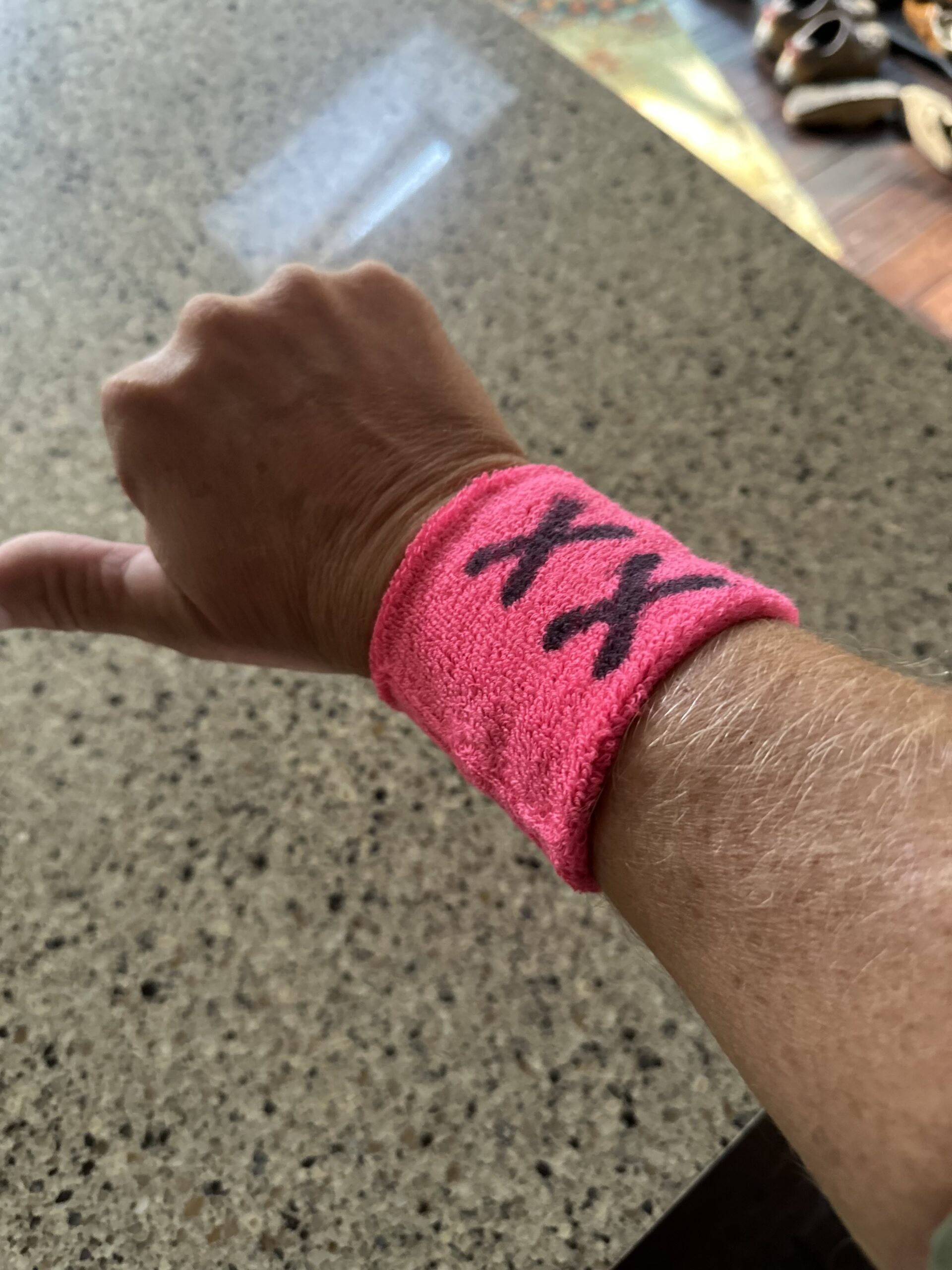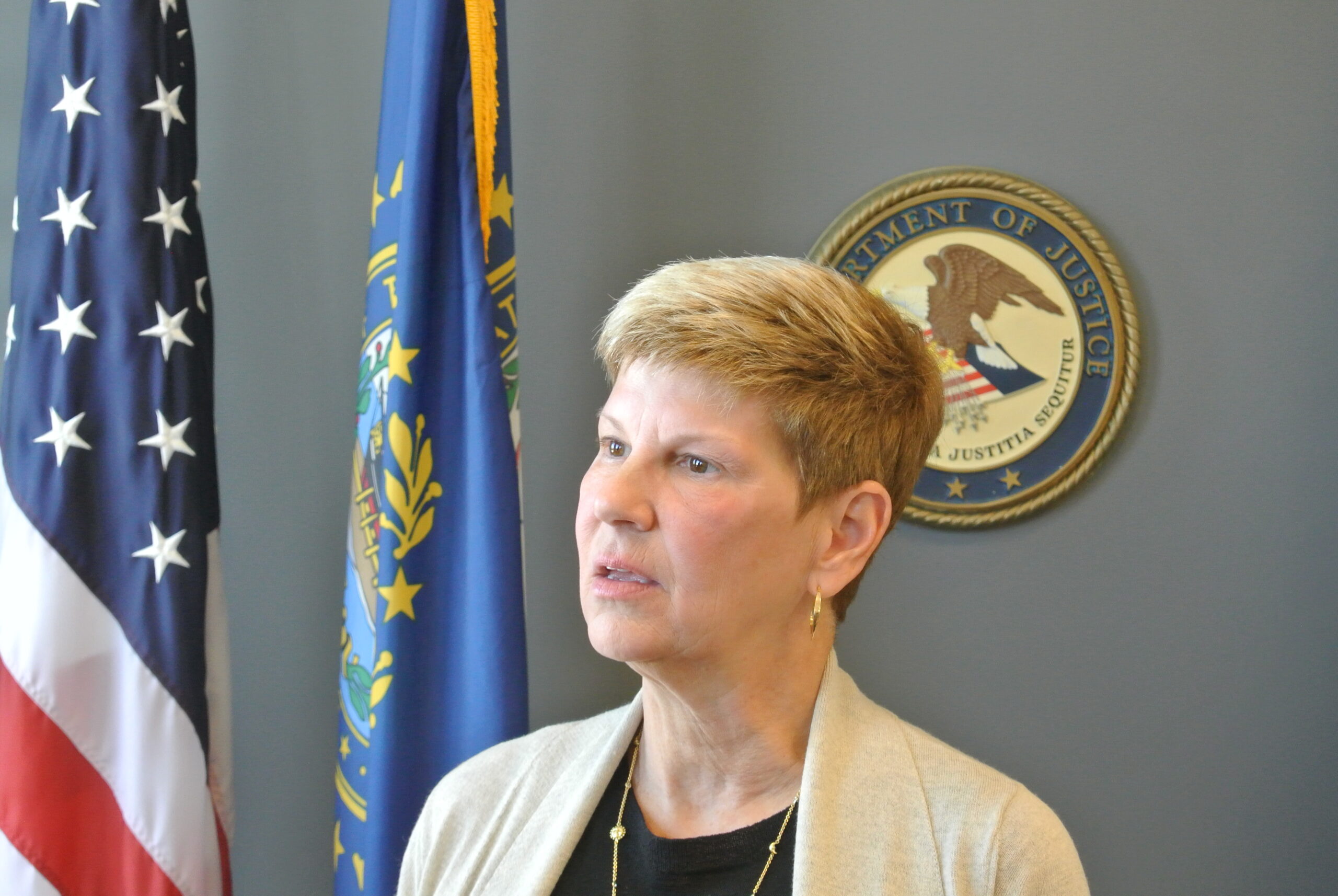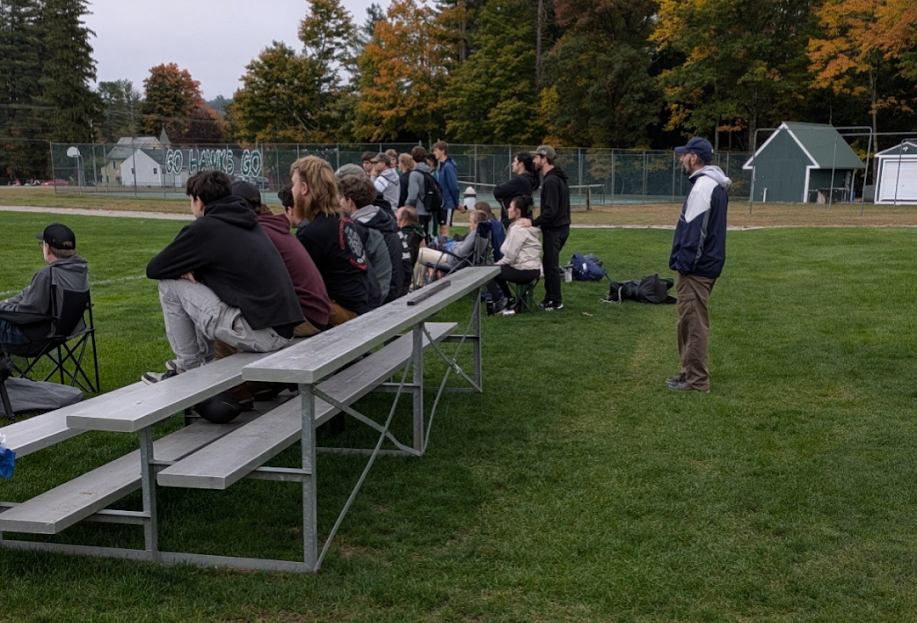Bow Official Who Banned Pink ‘XX’ Wristbands Says Gay Pride Symbols Welcome

Bow High School superintendent Marcy Kelly rejects the claim that she opposes freedom of expression at school events. She told a federal judge on Friday that flags and symbols are welcome — as long as she agrees with their message.
Specifically, Kelly told United States District Court Judge Steven McAuliffe that, while she stands by her decision to ban parents from wearing pink wristbands in support of girls-only sports, she would welcome the waving of Gay Pride flags and other symbols at the same events.
Soccer dads Kyle Fellers and Anthony Foote were slapped with “no trespass” orders by Kelly and the Bow School District after they wore the wristbands at the Sept. 17 girl’s Bow High School soccer game against Plymouth High School.
Kelly told the court she found the wristbands “exclusionary,” and therefore, she believes she has the authority to ban them from school events.
Kelly testified she knew from emails and social media posts that the men might wear the pink “XX” wristbands, and that was something she wanted to stop. “I had concerns (Foote and Fellers) were going to display an anti-trans message on that one day.”
Kelly admitted she initially considered banning all would-be spectators from the game. Instead, she settled on a plan to have police at the game and use school officials to patrol the sidelines looking for actions or symbols she found offensive.
“XX is a pretty well-known anti-trans symbol,” Kelly claimed.
(According to science, women have XX chromosomes and men have XY chromosomes.)
Del Kolde, an attorney with the nonprofit Institute for Free Speech who is representing the plaintiffs in the lawsuit against Kelly, asked Kelly if she would allow parents to wear LGBTQ+ Rainbow Pride wristbands at games.
No problem, Kelly said. “It’s inclusionary, it’s not targeting or harassing anyone,” she said.
And that, Kolde told NHJournal, is a legal smoking gun.
“The Bow School officials have basically admitted to engaging in viewpoint discrimination. That is illegal in a limited public forum, such as school sporting events. We hope that this censorship regime will soon be enjoined.”
United States District Court Judge Steven McAuliffe has already overturned Bow’s “no trespass” order that prevented Fellers and Foote from going to games and other afterschool events. Whether the dads can engage in silent protests at future games and events by wearing the XX wristbands is still up in the air.
Kelly said her belief that “XX” symbolism is anti-transgender bigotry is on based on her reaction to the work of Riley Gaines, the NCAA swimmer who was forced to compete against a biological male, Lia Thomas.
“I find that when (Gaines) says ‘XX means real women,’ that is exclusionary,” Kelly said.
Gaines has emerged as a national advocate for girls-only sports and private spaces. In August, Gaines came to New Hampshire to support a new law banning males from girls’ support in the 5th through 12th grades. She described “the experience of competing against a man in women’s sports, being forced without warning or consent to undress before the fully intact male.”
Support for protecting girls’ sports from biological males who want to compete has soared over the past few years. Polls in New Hampshire and at the national level show voters support banning males from girls’ sports by a three or four-to-one margin.
Also on Friday, New Hampshire Attorney General John Formella joined a group of 24 state attorneys general urging the U.S. Supreme Court to overturn a lower court ruling and uphold an Arizona law prohibiting biological boys from competing on girls’ sports teams.
“Basing the distinction on biology rather than gender identity makes sense because it is the differences in biology—not gender identity—that call for separate teams in the first place: Whatever their gender identity, biological males are, on average, stronger and faster than biological females,” the brief reads in part.
New Hampshire passed a similar law over the unanimous opposition of Democrats in the state House and Senate.
Last week’s hearings in the Bow case will inform McAuliffe’s decision on possibly lifting the ban on silent protests. A trial on the merits of the lawsuit is still to come.












